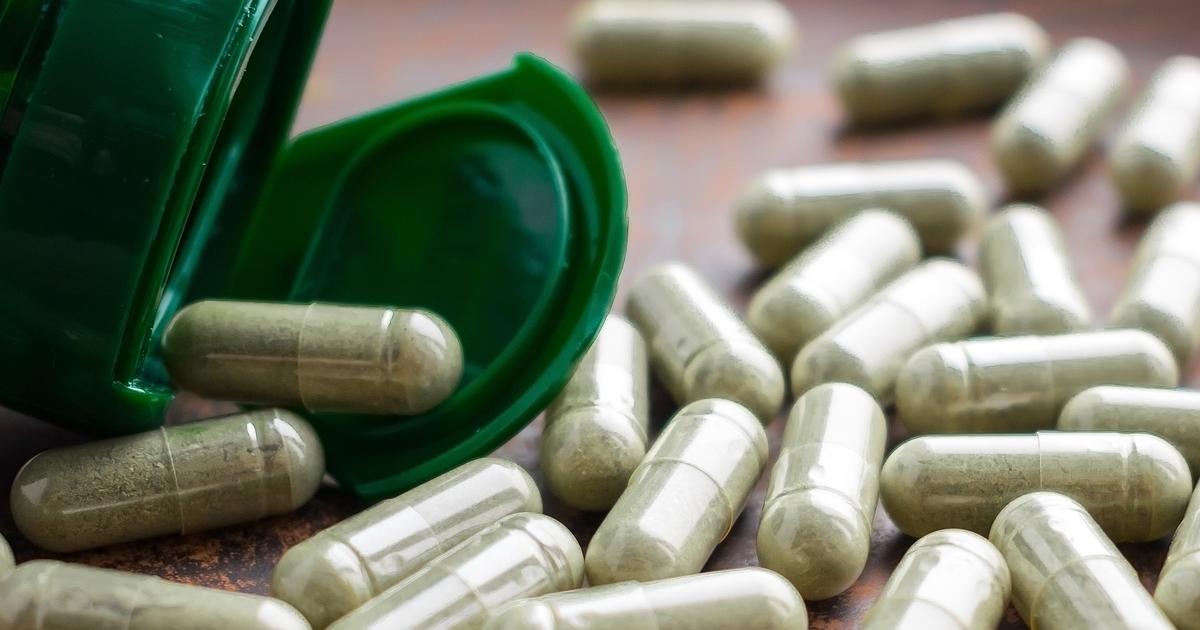Surprisingly Common Treatments And Activities That Damage Digestive Health
The digestive system breaks down food into vital energy as well as expelling waste from the body. Unfortunately, many practices considered commonplace in modern society are harmful to digestive health within the human body. Also, individuals who are underweight or overweight will experience digestive problems more frequently than those who maintain a healthy weight. Digestive health is critical to the process of achieving optimum health because the digestive system is essential in maintaining good body function and health.
Here are details on some of the most common but surprising things that will negatively impact an individual's digestive health.
Antibiotics

Every course of antibiotics an individual takes will kill the majority of bacteria, good and bad, within their stomach and bowels. Antibiotics are damaging to the digestive system because the gut bacteria that fights yeast growth has been lowered and the levels of bacteria and yeast have become unbalanced. Higher levels of yeast mean the body will shift its metabolic functions to satisfy the fungus growing within the digestive system. After taking a course of antibiotics, many patients will undergo a two or three-day program that involves consuming probiotics, fermented foods, or bone broth to restore the balance of the digestive system within their body. Experts claim too many individuals (specifically Americans) take antibiotics to prevent viral infection, which can contribute significantly to a decline in gut health. Patients should only use these types of treatments when truly necessary.
Uncover information on another practice that can be harmful to digestive health now.
Antacid Medication

Antacid medication is very common, and some individuals even use them daily to relieve acid reflux or heartburn. What is often less known is the fact these types of medications can cause more harm to the digestive system than good. If antacids are being used every day, it may be a sign there is a deeper problem within the individual's digestive system and perhaps a lifestyle change may be in order. Antacid consumption over an extended period can lead to allergies, bloating, and discomforting gas. Some antacids on the market contain aluminum, which has various side-effects, such as diarrhea and constipation, discomfort, loss of appetite, weakness, calcium loss, osteoporosis, kidney stones, inflammation, and pale or clay-colored stools. Other antacids may contain magnesium or sodium bicarbonate, which also have similar side-effects to antacids containing aluminum.
Continue reading to learn more about what can cause harm to the digestive system now.
Vitamins, Minerals, Medications, And Supplements

Many types of vitamins, minerals, medications, and supplements will disrupt the bacteria and yeast levels in an individual's digestive system either negatively or positively. Whey protein is a very common supplement for many individuals who go to the gym, but whey protein has several adverse effects on the efficiency of digestion, and too much protein powder can lead to constipation and indigestion. Many different vitamins and minerals will affect the digestive system negatively, but every individual may have a mixed reaction to different vitamins. Vitamins with a positive effect on digestion, when taken appropriately, include iron, selenium, vitamin D, and zinc. Prescribed medications can also wreak havoc on the digestive system. Taking an antipsychotic medication can make a patient gain weight and cause a significant shift in bacteria within the digestive system. Anti-inflammatory medication can even lead to bleeding and 'leakiness' of the stomach which can cause food sensitivities as well as stimulate sugar-loving yeasts and bacteria in the stomach.
Discover additional factors with a negative influence on digestive health now.
Various Lifestyle Factors

Many lifestyle factors impact digestive health, such as being over or underweight. Stress levels, social life, the presence of pets, and even exposure to nature are some of the variables that can negatively affect the efficiency of digestion. Food is perhaps the easiest way to change digestive health, either negatively or positively. Moderation must always be kept in mind. Jessica Anderson, of Texas A & M Health Science Center, claims foods high in fat and fried can overwhelm the stomach, which leads to acid reflux, heartburn, and other digestive problems. Diet is a crucial factor in maintaining a healthy digestive system and foods such as chili peppers, alcohol, and dairy can also have the same effect as high fat fried food. Yogurt, ginger, kimchi, lean fish and meat, and whole grains are recommended foods for a healthy digestive system.
Read more about what can damage digestive health now.
Lack Of Prebiotics

Prebiotics are a food source for the bacteria in the digestive tract, and they can improve the balance of healthy bacteria in the gut. Prebiotic foods tend to be high in fiber, and experts recommend oats, lentils, beans, bananas, chickpeas, and nuts as ideal prebiotics. Research suggests a high-fiber diet may protect against colon cancer and reduce the risk of hemorrhoids and diverticular disease. In addition, fiber makes stools easier to pass by softening them and increasing their weight, and this could reduce the likelihood of constipation. Patients are advised to gradually increase their fiber intake to prevent bloating and stomach cramps. Individuals with irritable bowel syndrome or other digestive issues should check with their physician before making dietary changes.
Uncover more habits that can damage digestive health now.
Lack Of Exercise

Studies suggest a lack of exercise could contribute to reductions in the diversity of gut bacteria. For example, a 2014 study of professional rugby players found these athletes had two times the number of bacterial families and much more diversity in their gut flora compared to non-athletes of the same gender, age, and body size. Notably, the rugby players had higher levels of Akkermansia, a type of bacteria that may reduce the risk of obesity. Studies of female patients found those who exercise regularly have higher levels of Akkermansia and Bifidobacterium, and research indicates individuals with higher overall fitness levels have higher levels of the bacteria that produce a fatty acid called butyrate. Major health organizations recommend doing at least thirty minutes of physical activity for five days a week or more.
Get more details on what can damage digestive health and how to fix it now.
Insufficient Sleep

Researchers are currently exploring the relationship between insufficient sleep and changes in gut bacteria. In a 2016 study, nine male patients were allowed to sleep 8.5 hours each night for two consecutive nights, and this was followed by sleeping only four hours per night for two consecutive nights. After just two nights of sleep deprivation, the participants showed increases in the types of gut bacteria associated with obesity, weight gain, and the development of type 2 diabetes. Most healthy adults need eight hours of sleep per night, and some may need up to nine hours. Patients are advised to keep their bedroom cool and dark, and it can help to go to bed and wake up at the same time each day. Daytime naps should be limited to no more than thirty minutes, and patients should not nap late in the afternoon.
Learn more about the habits considered damaging to digestive health now.
Smoking And Alcohol

Smoking and alcohol consumption both have adverse impacts on digestive health. Tobacco use increases the patient's risk of inflammatory bowel disease, and patients who smoke are twice as likely to develop Crohn's disease compared to non-smokers. In a 2013 study, researchers found smoking cessation increased the diversity of participant's gut bacteria and also increased the subject's levels of Firmicutes and Actinobacteria. Patients trying to quit smoking should ask their doctor about smoking cessation courses and support groups, and they might want to consider taking medication to reduce nicotine cravings as well. Patients who have alcohol use disorders appear to be at a higher risk of digestive issues compared to individuals without these disorders. For example, a 2012 study of forty-one patients with alcohol use disorders and ten individuals without alcohol issues discovered twenty-seven percent of the participants with alcohol use disorders had imbalances in gut bacteria. None of the participants in the control group were found to have these imbalances.
To protect digestive health and gut bacteria levels, patients are encouraged to limit alcohol consumption to no more than three drinks per week. Individuals who believe they might have an alcohol use disorder are advised to see their primary care doctor for information about medications, support groups, and treatment centers that may be beneficial.
Discover additional habits that are damaging to digestive health now.
Chronic Stress

Patients who experience chronic stress may have more frequent episodes of nausea, indigestion, constipation, or diarrhea. While chronic stress itself is not a recognized cause of most digestive diseases, it can exacerbate symptoms of irritable bowel syndrome, inflammatory bowel disease, gastroesophageal reflux disease, and peptic ulcers. Patients who are under very high levels of stress for a prolonged period could have decreases in blood flow and oxygen to the stomach, and they might develop abdominal cramps or digestive tract inflammation. In serious cases, the esophagus could begin to spasm as a result of chronic stress. Studies show high levels of stress may reduce the number of beneficial bacteria in the gut as well.
To reduce stress, doctors advise that patients consider deep breathing, meditation, yoga, and other relaxation techniques. Many individuals find regular physical activity reduces their stress, and it could be beneficial to try reading, listening to music, or watching a new movie. Patients who struggle with stress may want to consider reaching out to a mental health professional for assistance. Mental health professionals can help patients learn healthy coping mechanisms and develop strategies to minimize stress in their daily lives. Medication could be beneficial in certain cases, and some patients can reduce their stress by making career adjustments.